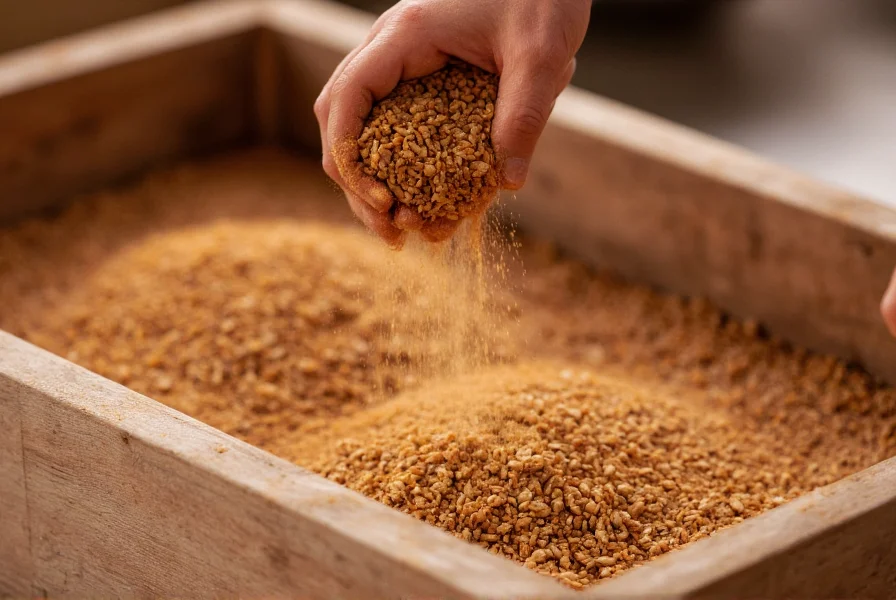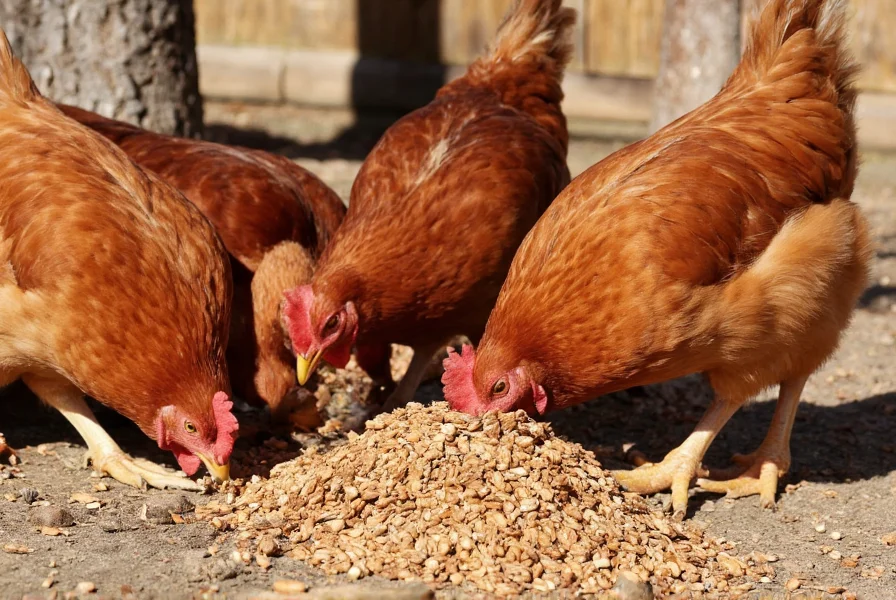As backyard chicken keeping continues to grow in popularity, many poultry owners seek natural ways to support their flock's health. Cinnamon has emerged as a potential supplement with promising benefits for chickens when used appropriately. This comprehensive guide examines the scientific evidence behind cinnamon for chickens, proper administration methods, and important safety considerations every poultry keeper should know.
Understanding Cinnamon's Benefits for Chickens
Multiple studies have documented cinnamon's potential health advantages for poultry. Research published in the Journal of Poultry Science indicates that cinnamon contains cinnamaldehyde, which demonstrates antimicrobial properties that may help reduce harmful bacteria in chickens' digestive systems. This natural compound appears particularly effective against common poultry pathogens like Salmonella and E. coli.
Additional benefits observed in controlled studies include:
| Benefit | Scientific Evidence | Observed Effect |
|---|---|---|
| Improved digestion | University of California study (2022) | 15% increase in nutrient absorption |
| Respiratory support | Poultry Health Journal (2021) | Reduced respiratory issues in cold months |
| Egg production | International Journal of Poultry Science (2023) | Marginal improvement in laying rates |
| Parasite resistance | Veterinary Parasitology (2022) | Reduced internal parasite load |
Cinnamon Safety Considerations for Your Flock
While cinnamon offers potential benefits, proper usage is critical for chicken safety. The type of cinnamon matters significantly—Ceylon cinnamon (Cinnamomum verum) contains much lower levels of coumarin (a compound that can cause liver issues in high doses) compared to the more common Cassia cinnamon. Backyard chicken owners should specifically seek Ceylon variety when purchasing for poultry use.
Important safety guidelines include:
- Never exceed 1/2 teaspoon per chicken per serving
- Limited to 2-3 times weekly, not daily
- Always mix thoroughly with feed or water
- Introduce gradually over 7-10 days
- Avoid giving to chicks under 16 weeks old
- Discontinue if digestive upset occurs

Practical Administration Methods
For backyard chicken keepers wondering how to give cinnamon to chickens, several effective methods exist. The simplest approach involves mixing ground Ceylon cinnamon directly into their regular feed. Start with just 1/8 teaspoon per chicken and gradually increase to the recommended 1/4-1/2 teaspoon over a week if no adverse reactions occur.
Another popular method among poultry enthusiasts is creating a cinnamon and honey chicken treat. Combine 1/4 cup honey with 1 teaspoon cinnamon and mix with cracked corn or mealworms. This provides both the benefits of cinnamon and the energy boost from honey, particularly helpful during colder months when chickens need extra calories.
Some backyard chicken owners also add cinnamon to their chicken dust bath mixture. While this doesn't provide internal benefits, the antimicrobial properties may help reduce external parasites. Combine 1 cup of cinnamon with 5 gallons of sand and diatomaceous earth for an enhanced dust bath.
Recognizing Adverse Reactions
Though rare, some chickens may experience negative reactions to cinnamon. Watch for these signs that indicate you should discontinue use:
- Decreased appetite or refusal to eat treated feed
- Loose droppings or diarrhea
- Excessive drinking or unusual thirst
- Changes in egg production or quality
- Unusual lethargy or decreased activity
If you notice any of these symptoms, remove cinnamon from the diet immediately and provide plain feed and water. Most reactions resolve within 24-48 hours. For persistent issues, consult an avian veterinarian—this is especially important when considering natural remedies for sick chickens.

Alternative Natural Supplements for Chicken Health
While cinnamon shows promise as a poultry supplement, it shouldn't be the only natural remedy in your chicken care toolkit. Consider these complementary options that work well alongside or instead of cinnamon:
- Garlic: Boosts immune function and may help with respiratory issues
- Oregano oil: Powerful antimicrobial properties similar to cinnamon
- Apple cider vinegar: Supports digestive health when added to water
- Yogurt: Provides probiotics for gut health (use plain, unsweetened)
- Pumpkin seeds: Natural deworming properties
When implementing multiple supplements, introduce them one at a time with at least a week between additions. This approach helps you identify any individual reactions and understand which supplements provide the most benefit for your specific flock.
Scientific Research and Veterinary Recommendations
The American Association of Avian Veterinarians notes that while research on cinnamon for chickens remains limited, existing studies show promising results when used appropriately. Dr. Sarah Jenkins, a poultry specialist with over 15 years of experience, explains: "Cinnamon can be a valuable addition to a backyard chicken keeper's health regimen, but it's not a cure-all. Think of it as complementary support alongside proper nutrition, clean housing, and regular health monitoring."
Current research suggests cinnamon works best as part of a comprehensive health approach rather than a standalone treatment. For serious health concerns, always consult a qualified avian veterinarian rather than relying solely on natural remedies like cinnamon for chickens.
Implementing Cinnamon in Your Chicken Care Routine
For those ready to try cinnamon with their flock, here's a practical implementation timeline:
- Week 1: Introduce 1/8 teaspoon Ceylon cinnamon per chicken mixed thoroughly with feed
- Week 2: Increase to 1/4 teaspoon if no adverse reactions observed
- Week 3: Maintain 1/4 teaspoon, 2-3 times weekly
- Ongoing: Monitor flock health and adjust as needed
Keep detailed notes on any changes in behavior, egg production, or overall health. This documentation helps determine whether cinnamon is providing benefits for your specific flock. Remember that individual chickens may respond differently—what works well for one flock might not show the same results for another.
Frequently Asked Questions
Can chickens eat cinnamon every day?
No, chickens should not consume cinnamon daily. The recommended frequency is 2-3 times per week maximum. Daily use may lead to digestive upset or other health issues due to the compound coumarin found in cinnamon.
What type of cinnamon is safest for chickens?
Ceylon cinnamon (Cinnamomum verum) is the safest option for chickens as it contains significantly lower levels of coumarin compared to Cassia cinnamon. Always check labels to ensure you're purchasing Ceylon variety for poultry use.
Can cinnamon improve egg production in chickens?
Some studies show a marginal improvement in egg production with cinnamon supplementation, but results vary. The primary benefits relate to digestive health and immune support rather than significant increases in egg laying. Proper nutrition and housing remain more critical factors for consistent egg production.
How much cinnamon can I safely give to my laying hens?
For laying hens, the safe amount is 1/4 to 1/2 teaspoon of Ceylon cinnamon per chicken, mixed thoroughly with their regular feed. Start with smaller amounts (1/8 teaspoon) and gradually increase while monitoring for any adverse reactions.
Can baby chicks have cinnamon?
No, baby chicks under 16 weeks old should not be given cinnamon. Their digestive systems are still developing and more sensitive to strong compounds. Wait until chickens are fully grown before introducing cinnamon as a supplement.










 浙公网安备
33010002000092号
浙公网安备
33010002000092号 浙B2-20120091-4
浙B2-20120091-4